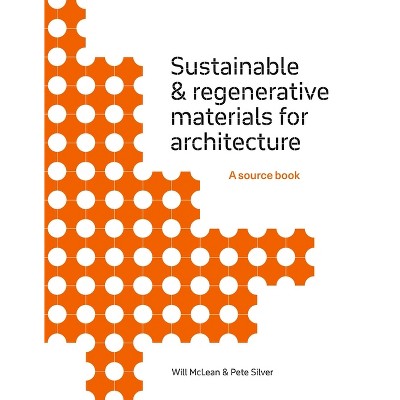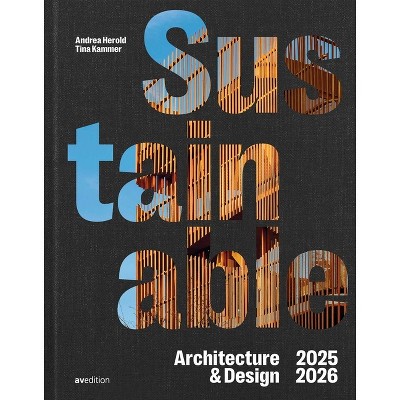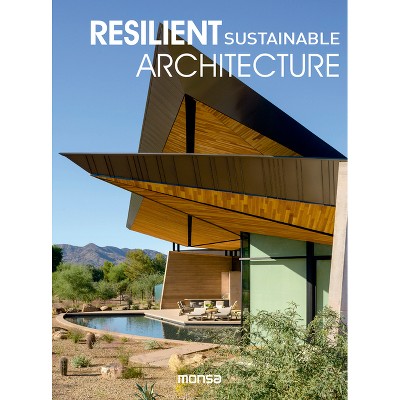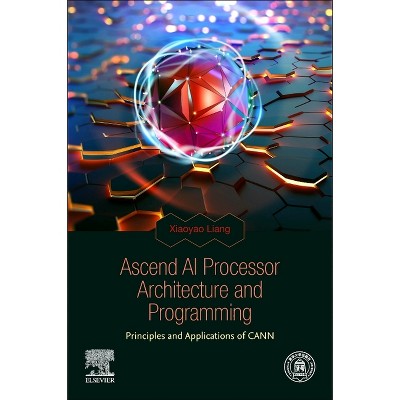Sponsored

AI in Modern Architecture and Design - (Emerald Studies in Sustainable Architecture and Design) (Hardcover)
Pre-order
Sponsored
About this item
Highlights
- Artificial intelligence (AI) and advanced digital technologies, like virtual reality (VR), the metaverse, neuroarchitecture, and nanotechnology are rapidly reshaping the fields of architecture and design.
- About the Author: Anna Visvizi, Ph.D. (dr hab.)
- 252 Pages
- Architecture, Interior Design
- Series Name: Emerald Studies in Sustainable Architecture and Design
Description
About the Book
This volume of Emerald Studies in Sustainable Architecture and Design examines the intersection of AI and architecture and provides a comprehensive exploration of AI-based tools and their role in shaping contemporary architectural practice.
Book Synopsis
Artificial intelligence (AI) and advanced digital technologies, like virtual reality (VR), the metaverse, neuroarchitecture, and nanotechnology are rapidly reshaping the fields of architecture and design. These innovations offer unprecedented opportunities to enhance sustainability, human well-being, and energy efficiency in these domains. However, alongside these developments come pressing questions about authorship, ethical responsibility, and the broader impact of AI-driven tools on the art and practice of design and architecture. As AI regulation continues to evolve globally, architects, designers, and scholars must engage in critical discussions about how new technologies can be harnessed responsibly. This volume of Emerald Studies in Sustainable Architecture and Design examines the intersection of AI and architecture and provides a comprehensive exploration of AI-based tools and their role in shaping contemporary architectural practice. Divided into three parts, this edited collection investigates AI's influence on design processes, its integration into architectural education, and its transformative potential in interior design and the metaverse. Through real-world case studies and expert contributions, this volume highlights both the opportunities AI presents and the ethical dilemmas it raises. By framing AI's role within the broader context of sustainability and the UN's Sustainable Development Goals (SDGs), this work makes a unique and timely contribution to the field. Bridging research and practice, this collection is an invaluable resource for academics, students, and professionals in architecture, design, urban studies, and sustainability. Offering both theoretical insights and practical applications, it equips readers with the knowledge needed to navigate the evolving landscape of AI-driven design.
About the Author
Anna Visvizi, Ph.D. (dr hab.), economist and political scientist, Professor at the SGH Warsaw School of Economics, and Visiting Professor at Effat University. Seasoned editor, researcher, recognized author, and accomplished project manager, Professor Visvizi has extensive experience in academia, think-tank and government sectors in Europe and the US, including the OECD. Professor Visvizi's expertise covers issues pertinent to the intersection of politics, economics and information and communication technology (ICT), which translates into her research and publications on applied aspects of ICT, in such domains as smart cities, knowledge & innovation management, as technology transfer, and governance. Professor Visvizi is the Editor-in-Chief of Transforming Government: People, Process and Policy (Emerald Publishing) as well as of Digital Policy, Regulation and Governance (Emerald Publishing).
Asmaa Ibrahim, Ph.D., Professor, currently serving also as the Dean of the College of Architecture & Design at Effat University. She is originally a Professor of urban development at the Arch. Dep. Faculty of Engineering, Cairo Univ. with 18 years of academic and professional experience. She was the Hubert H. Humphrey Fellow in the SPURS program at MIT, USA (2018/2019). She was the main coordinator in the Double Master Program with Cottbus University in Germany, and Alex. University. She has fourteen years of experience in strategic regional and urban planning projects in UN HABITAT, GOPP, and GIZ with a focus on community development, gender programming and regeneration policies in historic districts, and new urban expansions. She has received extensive training at the World Resource Institute in Washington DC and Oxfam America in Boston in 2018/2019. She has more than 20 international publications in the field of sustainable urbanism. Mohammed F. M. Mohammed, Ph.D., is an Associate professor of architecture and design. He received his Masters and Ph.D. in Architecture from Cairo University, Egypt in 1999, 2004 respectively. Dr. Fekry's Ph.D. thesis entitled "THE ROLE OF CRITICISM IN ARCHITECTURAL EDUCATION: An Experimental Model for Enhancing the Architectural Students' Critical Skills in Design Studio". It focuses on developing one of the higher mental skills of the students of Architecture; where an experimental model was applied, which increased the students' participation in the design studio, encouraged the students' skills in presentation of ideas and design projects, improved the students' ability to connect between the design concept and appropriate design solutions, and improved their ability of analyzing and introducing constructive criticism of the design projects. Dr. Fekry has taught Architecture and Design in Egypt at Cairo University between 1995 and 2009. Also, he has taught Architecture and Design in KSA at Umm Al-Qura University between 2009 and 2013. He is currently teaching courses in capstone project and Design Studios at Effat University, Saudi Arabia. Amgad Fahmy, Ph.D., is a Professor at the Arab Academy for Science and Technology (AAST), Architecture Department, working as well at the Effat University College of Architecture & Design. He received his Bachelor of Architectural Engineering and Master of Science in Architectural Engineering, both from the Department of Architecture, Faculty of Engineering, Cairo University, in 2000 and 2006, respectively, and completed his Ph.D. at the Division of Building Science, University of Karlsruhe in 2011. He is also a member of the NCEUB Network for Comfort and Energy Use in Buildings, The International Building Performance Simulation Association (IBPSA), and the Egyptian Syndicate of Engineers. His main research interests include Environmental Design, Design for Comfort, Sustainable Design, and Building Materials.Shipping details
Return details
Frequently bought together
Trending Non-Fiction

















